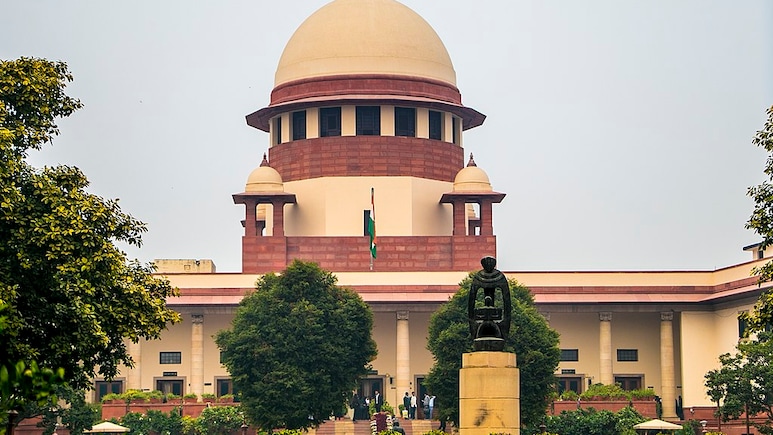
- Mistake to not trust evidence on RDX recovery, argued Maharashtra in its petition before the top court
- The top court has listed the matter for hearing on Thursday
- The Bombay High Court on Monday acquitted all 12 accused in 2006 Mumbai train blasts
The Maharashtra government has filed an appeal in the Supreme Court challenging yesterday's Bombay High Court's decision to acquit 12 persons who were accused in the 2006 Mumbai train blasts.
The plea was mentioned on Tuesday before a bench led by Chief Justice of India (CJI) BR Gavai by Solicitor General of India (SGI) Tushar Mehta, who requested that the plea be taken up urgently by the top court.
The Court listed the matter for hearing on Thursday.
Nineteen years after seven train blasts that killed more than 180 persons, the high court on Monday acquitted all the 12 accused, saying the prosecution utterly failed to prove the case and it was "hard to believe the accused committed the crime".
The Maharashtra Anti-Terrorism Squad (ATS), said the high court, failed to prove the offences beyond a reasonable doubt.
The high court set aside a September 2015 judgment of the Maharashtra Control of Organised Crimes Act (MCOCA) court that had imposed the death penalty on 5 of the 12 accused persons and had sentenced the remaining 7 to life.
In its damning indictment of the prosecution's case, the high court declared all confessional statements of the accused as inadmissible and suggested "copying".
The Maharashtra government argued in its petition that the high court has recorded a "very peculiar observation in disbelieving the confession" of the fifth accused.
The government has called it a mistake to not trust the important evidence on the recovery of RDX and detonator.
"The High Court has disbelieved the recovery of 500 gms of RDX from Accused No 1on a hyper technical ground that the RDX which was seized was not sealed with a lac seal. It is worth noting that it was not sealed with Lac because RDX is a flammable substance...The high court has erred in disbelieving the recovery of RDX," said the government in its petition.
Investigators said the bombs, made of RDX and ammonium nitrate, were placed inside pressure cookers and concealed in bags. The attacks were attributed to Pakistan-backed Islamic militants.
The High Court, argued the state government, has committed a grave error in not accepting the arguments advanced by the trial court for sentencing the accused.
"It has erred in acquitting the accused of all the charges including the UAPA," it said.
The Anti-Terrorism Squad (ATS) filed charges under the Maharashtra Control of Organised Crime Act (MCOCA) and the Unlawful Activities (Prevention) Act (UAPA). The prosecution relied heavily on confessions, alleged recoveries, and circumstantial evidence - none of which stood up under the high court's scrutiny.
"It is necessary to see that the accused were continuously engaged in activities prohibited by law, which are cognizable offences punishable with imprisonment for 3 years or more and in respect of which more than one charge sheet has to be filed in the competent court within the preceding period of 10 years and which have been tried by the competent court cognizance should have been taken," it said.
Former Mumbai police commissioner A N Roy today expressed shock over the high court's acquittal of all 12 accused in the case, saying the probe into the case was conducted by the Maharashtra Anti-Terrorism Squad (ATS) in a professional manner where evidence was collected "honestly and truthfully".
On the evening of July 11, 2006, bomb blasts took place at seven different places in the Mumbai local trains within just 11 minutes. In this incident, 189 people died, while more than 827 passengers were injured.
The bombs were placed in first-class compartments of trains from Churchgate. They exploded near the stations of Matunga Road, Mahim Junction, Bandra, Khar, Jogeshwari, Bhayandar, and Borivali. A trial court in 2015 convicted 12 people in the blasts' case.
Track Latest News Live on NDTV.com and get news updates from India and around the world

